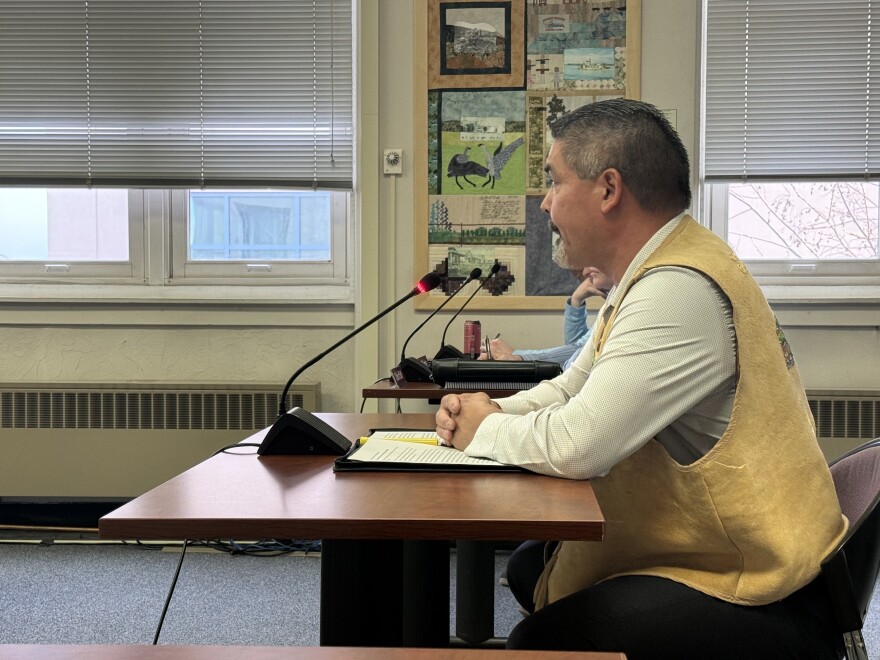City of Fairbanks Mayor David Pruhs publicly apologized Monday for making a Facebook post last week that seemed to imply a connection between Alaska Natives and vandalism downtown.
The post earned sharp criticism from Native leaders, who called his words harmful and divisive. They now say time will tell just how sincere the apology is.
“I think it’s a start. It’s a step in the right direction,” Tanana Chiefs Conference Chief and Chairman Brian Ridley told KUAC after the meeting Monday. He said he hopes the incident will reinvigorate communication between the city and tribal leaders.
“I can’t just say, ‘oh yeah, that was a good response,’ or not. It’s how he leads from here forward that’ll be telling,” Ridley said.

A couple of sentences Pruhs wrote on social media Friday sparked the controversy. They were part of a longer post about the city’s caretaking efforts and police presence around Golden Heart Plaza, which sits at the edge of Downtown on the banks of the Chena River.

He read those sentences into the record at Monday night’s city council meeting.
“As warmer temperatures have come, more people have come in from the villages and come out of the shelters to live their lifestyle. We operate the downtown on behalf of Fairbanks residents, and we live here, too, not just visitors,” he read aloud.

Later in the meeting, Pruhs said he’d considered his remarks a response to a user who had lambasted the city’s treatment of the plaza, and that he didn’t realize his statements were racist until Saturday.
That comment came after he read from a community perspective piece he submitted to the Fairbanks Daily News-Miner, which concluded, in part, like this: “Please don’t take it as racist. It was not my intent. I do apologize for these words.”
The post had drawn intense backlash from TCC and Fairbanks Native Association over the weekend.
In separate statements, the organizations called the mayor’s words reprehensible and discriminatory, and they also pointed to both Alaska Native people’s long history in Interior Alaska as well as their current contribution to the Fairbanks area economy.
“He owns up to it, and we appreciate that,” Sharon McConnell, president of the Fairbanks Native Association board of directors, said after the meeting.
Like Ridley, she stressed the importance of working together with the city, as well. But McConnell also said some response from the city council seems appropriate in light of the mayor’s post, though she declined to comment on what that should look like.
“That’s up for the city council. As we stated in there, we hope there is some action taken because there should be consequences [for] things that have occurred,” she said.
Prior to Pruhs’s apology Monday, more than 20 people testified during the citizens’ comments period, with many, like Teisha Simmons, saying the post worked to perpetuate stereotypes and was unbecoming of a public official.
She’s the interim dean at the University of Alaska Fairbanks College of Indigenous studies but said that she was speaking only on her own behalf.
“As a leader, comments like those also give permission for others to think about us that way and feel that way about us, and treat us that way,” Simmons said.
After reading off the piece he’d written for publication in the local paper, Pruhs also pledged to treat the situation as a learning experience.
“We’re gonna put together a group mainly of Natives, myself and talk about racism, drugs, colonization – these issues – I’m already getting people signed up. I will learn. I will help.”


